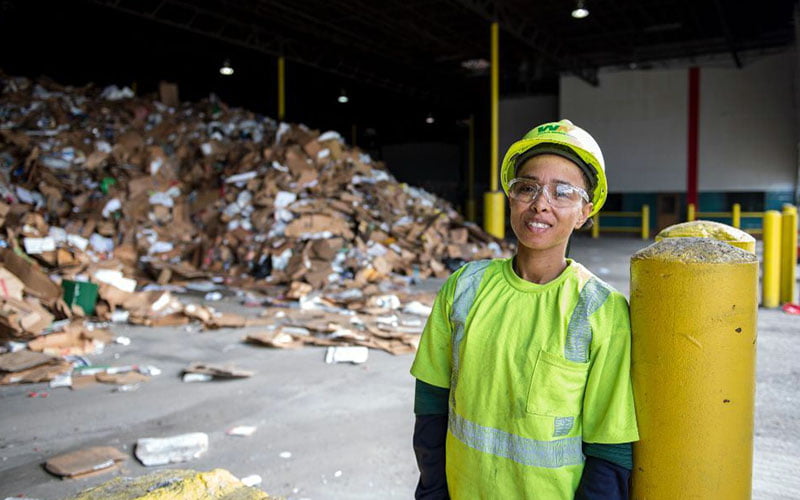
In today’s world, waste management has become a critical concern due to the increasing global population and its impact on the environment. As a result, the demand for waste management professionals has grown significantly. If you are passionate about preserving the environment, waste management careers offer an excellent opportunity to make a positive impact while building a fulfilling and rewarding career. In this article, we will explore various aspects of waste management careers, from job prospects to required qualifications and growth opportunities.
Waste management careers provide a unique blend of environmental consciousness, sustainability, and career growth potential. By pursuing a career in waste management, you contribute to the well-being of society and play a crucial role in preserving the planet for future generations. Additionally, the waste management industry offers diverse job opportunities and competitive salaries, making it an attractive field for those seeking stability and professional growth.
The waste management industry encompasses a wide range of job roles, catering to various aspects of waste collection, disposal, recycling, and environmental sustainability. Some of the key waste management careers include:
To pursue a successful career in waste management, it is crucial to acquire the necessary education and qualifications. While specific requirements may vary depending on the job role and level of responsibility, the following qualifications are generally sought after in waste management careers:
Obtaining relevant certifications not only enhances your knowledge but also demonstrates your commitment and expertise in waste management practices.
Waste management careers demand a combination of technical knowledge, practical skills, and personal qualities. Here are some essential skills and competencies required for success in the field:
The waste management industry offers abundant opportunities for career growth and progression. As you gain experience and expertise, you can advance into higher-level roles with greater responsibilities. Here are some potential career paths in waste management:
By pursuing continuous professional development, expanding your network, and staying up-to-date with industry trends, you can unlock numerous growth opportunities in waste management careers.
A: The average salary in this field can vary depending on factors such as job role, experience, and geographical location. However, according to the U.S. Bureau of Labor Statistics, waste management professionals earn a median annual wage of around $70,000.
A: Yes, the waste management industry offers ample opportunities for career advancement. By acquiring additional qualifications, gaining experience, and demonstrating leadership skills, professionals can progress into higher-level roles with greater responsibilities and increased earning potential.
A: This field come with various challenges, including waste minimization, recycling infrastructure development, and regulatory compliance. Additionally, addressing public perception, community engagement, and changing waste management practices pose continuous challenges for professionals in the field.
A: Even if you do not pursue a full-time career in waste management, there are several ways to contribute to waste management initiatives. You can participate in community clean-up drives, support recycling programs, educate others about waste management practices, and promote sustainable living in your daily life.
A: Waste management is a dynamic field that continually adapts to advancements in technology, regulations, and sustainability practices. Some emerging trends in waste management careers include waste-to-energy conversion, circular economy principles, digitization of waste management systems, and increased focus on reducing plastic waste.
A: Absolutely! With the growing awareness of environmental issues and the need for sustainable waste management practices, the demand for waste management professionals is expected to increase. This makes waste management a promising field for future employment with ample opportunities for those passionate about environmental stewardship.
Waste management careers offer a unique opportunity to combine environmental consciousness with professional growth. Whether you are interested in waste collection, recycling, sustainability, or project management, the waste management industry provides diverse career paths to suit your interests and skills. By pursuing education, acquiring relevant qualifications, and developing essential skills, you can build a successful and purposeful career in waste management while contributing to a cleaner and more sustainable world.
Recommended other topics: Climate Change Mount Sinai-Its Impact and Consequences










© InfoDoot. All Rights Reserved.